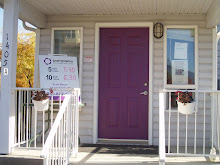It's probably time to start the countdown on interest rates going up
The Bank of Canada only pledged -- conditionally -- to keep its record-low lending rate until the end of the second quarter, so that leaves us with slightly more than four months before the housing market falls apart. At least that's what some national magazines and economists predict will happen when rates start to rise.
"Some people say they could go up in April, but I don't buy that," says Benjamin Tal, senior economist with CIBC World Markets and one of the more sane voices out there. He predicts a pullback in housing, but not the collapse we've seen in the United States.
So, what do you do in the face of this inevitable march of the interest-rate hikes coming our way, likely at the Bank of Canada's first meeting in July?
"I think people will start locking in their rates very soon and that's already happening," says Mr. Tal, referring to the variable-rate crowd that has mortgages tied to prime. "The five-year [fixed] rate [mortgage] will be moving [up] well ahead of the bank rate in anticipation of an increase."
While locking in is extremely tempting in this market -- given a five-year mortgage is as low as 3.8% -- a floating-rate mortgage can be had for almost half that. Vince Gaetano, a vice-president of Monster Mortgage, said he's seeing variable rates for as low 30 points off prime, or 1.95%.
The problem for many Canadians who negotiated variable-rate mortgages in the past year and still don't want to lock in, is they are stuck in contracts that have them paying a rate as much as 100 basis points (one percentage point) above prime. The reason they call it a five-year term is because that's the length of the contract.
But Mr. Gaetano says just break that mortgage. If you are in a variable-rate contract, the penalty is three payments. To go from a contract that is 100 basis points above prime to one that is 30 points below, could have you recoup your money in less than a year.
"There is a large amount of people refinancing to take advantage of these variable rates. We've seen a full-point comeback in the borrower's favour. We'll never see 1.95% ever again," says Mr. Gaetano.
One option for consumers who can't make up their minds is to apply to the bank for a new mortgage and have the financial institution hold the rate for as much 120 days.
"There will be a credit bureau check on your name and it could lower your credit score if you don't use money," says Mr. Gaetano, referring to the potential pitfalls of looking elsewhere for a new rate.
The reality is most consumers, once they have their mortgage, stay put and wait for renewal. The banks have a loyalty record that would make any industry drool. According to the Canadian Association of Accredited Mortgage Professionals, 93% of borrowers who renew on schedule stay with the same lender. Even among those who renew early, 81% stay with same financial institution.
As you consider where to go next with your mortgage, you should remain open to switching financial institutions if it saves you money. Sometimes there are costs, but the potential savings from a better rate can offset those costs.
Martin Beaudry, vice-president of ING Direct Canada, says his company will now hold your rate for 120 days by just applying online. You don't even need to fill out a full mortgage application. ING holds the rate on any term, or even the spread between a variable-rate and prime, which is now 20 basis points.
"There is no downside, but less than half of people take advantage of rate guarantees. People deal with renewals less than 30 days before the maturity date," says Mr. Beaudry.
Most banks will guarantee you a rate 90 days in advance of your mortgage coming due. Why wait until the last minute and why stay with same institution, if you are not getting the best rate going?
- Dusty wallet Having trouble making ends meet because of property taxes? If you are a senior citizen, some jurisdictions will allow you to forgo the payments with the amount owing attached as a lien on the house. Make sure to check the interest rate they charge, or your heirs could be left with a lot less house -- if you care about that.


No comments:
Post a Comment